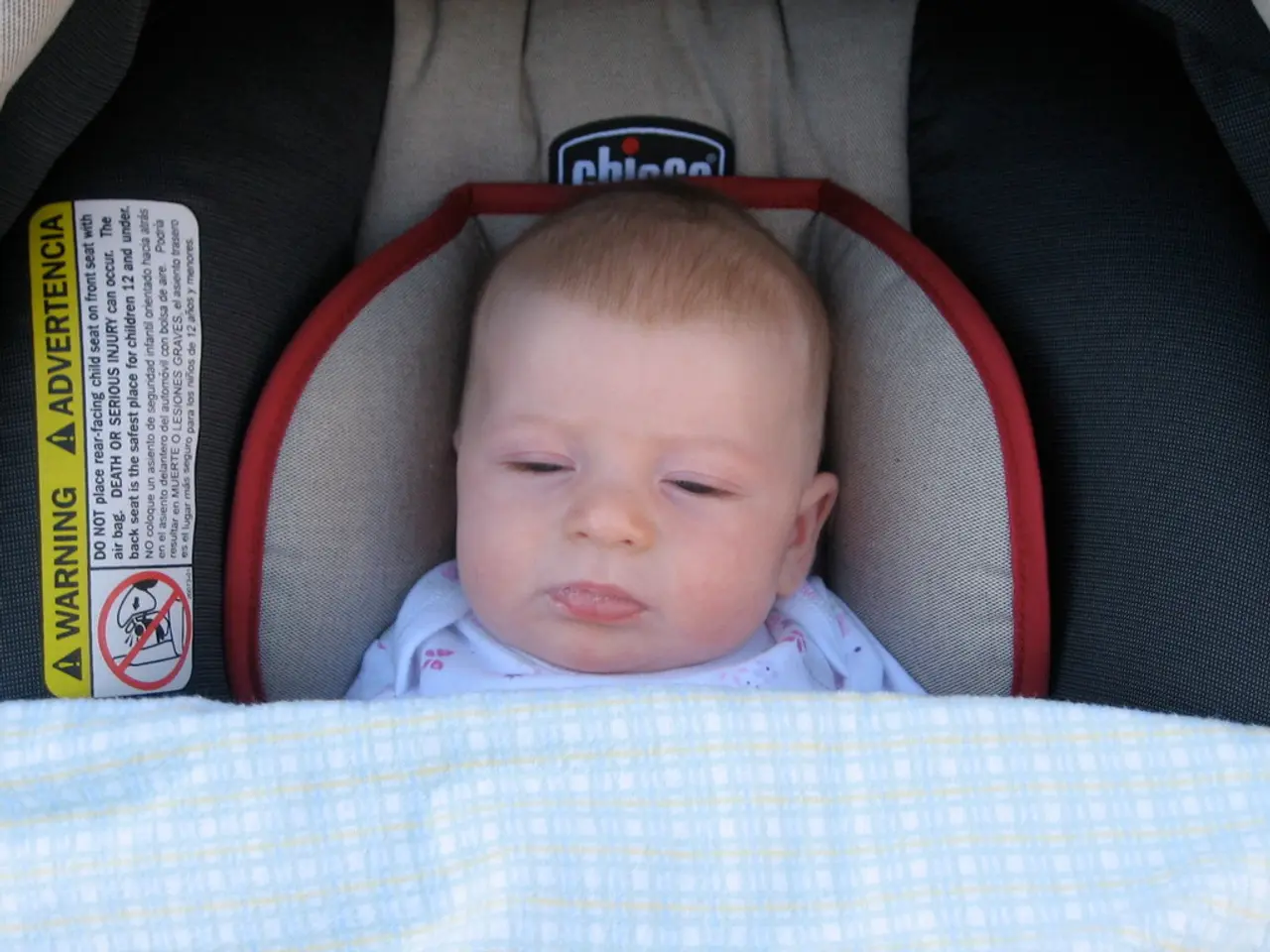Securing Infants in Nigerian Homes: Crucial Guidelines to Follow
=========================================================================
Ensuring the safety of babies within Nigerian homes is an integral duty for every family member. In this post, we will discuss practical tips to create a safe environment for our most vulnerable members, focusing on fire safety, choking hazards, and specific environmental conditions prevalent in Nigerian households.
Firstly, preventing choking hazards in Nigerian homes is crucial. Tips include cutting food into small, manageable pieces, avoiding giving hard candies, nuts, and small objects to babies, and keeping small objects out of babies' reach. Moreover, supervising mealtimes to ensure safe eating habits, encouraging babies to eat slowly, taking small bites, and chewing thoroughly before swallowing is essential.
When it comes to fire safety, it is crucial to take all necessary precautions. Install smoke detectors on each floor to detect fires early and provide enough time for evacuation. Developing a fire evacuation plan is crucial, including designated escape routes from each room, a meeting point outside the house, and clear instructions on how to exit the building safely. Regularly discuss fire safety with your entire household and ensure that everyone understands and follows the precautions.
Creating safe environments for Nigerian babies requires continuous attention. Beyond general baby safety practices, specific tips for safeguarding babies in Nigerian homes include protecting babies from mosquitoes during the rainy season, ensuring access to safe drinking water, dressing babies appropriately for the local climate, maintaining high hygiene standards, being aware of legal protections and child welfare oversight, and having access to first-aid supplies and necessary medications.
In addition, creating a safe bathing routine for your baby includes testing water temperature, using a safe and appropriate tub or basin, keeping all bath products within reach, but out of baby's grasp, and drying baby properly after bathing.
Protecting against accidental falls involves avoiding leaving babies unattended on elevated surfaces, using safety gates at the top and bottom of stairs, installing window guards, ensuring furniture and toys have proper safety features, supervising playtime, and minimizing falls and accidents. Avoid the use of pillows, toys, and heavy blankets in your baby's crib.
From the moment a baby enters a home, everything changes, and their innocence and fragility demand unwavering protection. Amidst Nigeria's bustling homes filled with warmth and joy, hazards may lurk unnoticed, so awareness and proactive measures become paramount.
Place your baby on their back to sleep, as it reduces the risk of choking and facilitates healthy breathing. Use a firm mattress and fitted sheets when setting up your baby's crib or bassinet. Install safety gates at stairs and doorways to prevent your baby from accessing potentially dangerous areas.
Finally, familiarize yourself with their usage and ensure they are well-maintained and easily accessible. Place fire extinguishers in key locations such as the kitchen, near the nursery, and close to the exit points of your home. Make sure to have an emergency contact list easily accessible in case of a fire, including important numbers such as the fire department, emergency medical services, and your neighbors' contact information.
This post serves as a guiding light, illuminating the path towards creating safe environments for Nigerian babies. By following these tips, we can work together to ensure a brighter, safer future for our youngest citizens.
- Every family member in a Nigerian household has a duty to ensure the safety of babies at home.
- Mealtimes should be supervised to promote safe eating habits among babies.
- Preventing choking hazards in Nigerian homes is vital, as it requires cutting food into small pieces and avoiding giving hard candies and small objects to babies.
- Fire safety is crucial, and precautions such as installing smoke detectors and developing a fire evacuation plan are essential.
- Creating safe environments for Nigerian babies includes measures like protecting them from mosquitoes, ensuring access to safe drinking water, and maintaining high hygiene standards.
- Safe bathing routines for babies involve testing water temperature, using safe tubs or basins, keeping bath products within reach, and drying babies properly.
- Protecting against accidental falls involves securing stairs and doorways with safety gates, minimizing falls and accidents during playtime, and avoiding using pillows, toys, and heavy blankets in babies' cribs.
- Parents should place their babies on their backs to sleep, use a firm mattress and fitted sheets, and be familiar with the usage and maintenance of fire extinguishers for extra safety measures.




